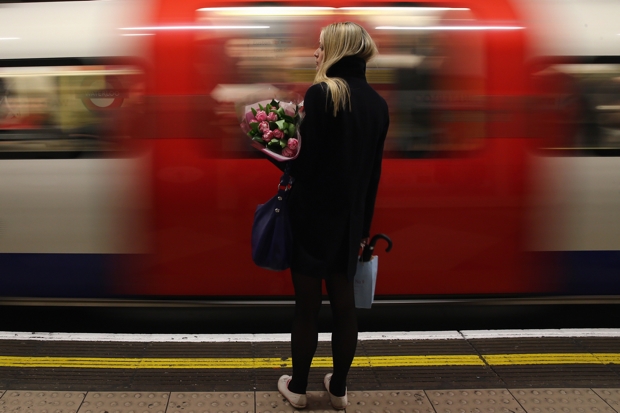The Tube isn’t an obvious political arena, but recently, it has become the backdrop for a number of flashy feminist statements. Last year, a blog which pictured women eating on the Tube provoked outrage among female activists, who held a picnic on the Circle line in protest. More recently, the infamous Protein World adverts, which supposedly encouraged body-shaming, were defaced before they were eventually banned.
Yesterday, TFL announced that more than 100 police officers will be on patrol once London Underground’s 24-hour service begins. Her Majesty’s finest will be accompanied by extra Community Support Officers and the installation of a further 13,000 CCTV cameras. What call is there for such precautionary measures? A big call if you believe the British Transport Police (BTP). Last month, the BTP released a video encouraging women to report unwanted sexual behaviour as part of ‘Project Guardian’, a campaign that already involves 2,000 police patrolling the London Underground specifically tasked with tackling instances of unwanted sexual behaviour. Unsurprisingly, the BTP’s programme works closely with censorious organisations like Hollaback London, Everyday Sexism and End Violence Against Women Coalition – all groups that are ever fond of inviting the state to interfere in the lives of women.
Project Guardian’s video depicts a woman being looked at, breathed on and then touched on the bum before asking the viewer if they would report this. Most women of course wouldn’t, as it isn’t worth reporting. Hopefully most women would stamp on his foot, or something to that effect. This presentation of the police as a protective older brother, rather than an enforcer of the law, is a clever excuse for an increase in surveillance in society. The bizarre thing is that some women are actually inviting this Big Brother style of policing. The publicity greeting the rise in reported instances of sexual assault on London transport (as revealed by TFL), reflects a morbid demand for more cases of rape and more cases of sexual harassment – seemingly if numbers are low, they must be wrong. In fact, TFL reported that the overall crime rate had reduced on London transport. There may have been an increase in reports of alleged sexual assault, but that doesn’t mean that there was an increase in legitimate criminal cases.
The increase of drunkards on tube carriages might make for a smellier ride, but it certainly doesn’t warrant a moral panic about the safety of women. Most women wouldn’t feel completely comfortable alone at 2am, but equally when the clock strikes midnight, all men do not turn into potential assailants. Why should someone returning from a boozy night out be any more likely to commit sexual assault in the confines of a tube carriage than they are when riding a night bus or hailing a taxi?
The depletion of individual freedoms and the expansion of the state’s control over personal life should be fought against. In the event of a crime, i.e. rape or assault, the police should be contactable to deal with this. But the police are now hoping to increase their powers supposedly in the ‘interest of women’. This should be met with scepticism by anyone who believes that a woman does not need protection from the outside world. Women should be encouraged to stand up for themselves when something happens that they don’t like, not rely on a man in uniform to protect them from unpleasant situations. There is a difference between a serious crime and an unpleasant experience – only the former requires handcuffs.
Ella Whelan is a staff writer at spiked






Comments